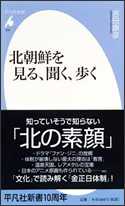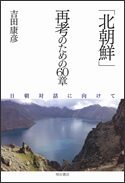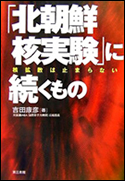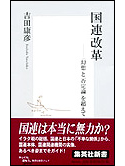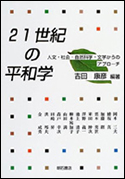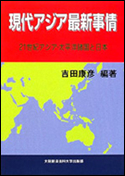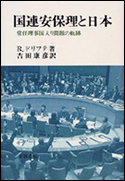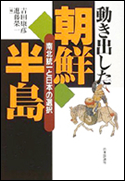2006年4月01日
【7】The Pugwash Workshop endorses the 9・19 Joint Statement (April 2006)
A Pugwash Workshop was held in Beijing for three days from 12 January 2006 on the stability, security and cooperation in Northeast Asia. The Workshop was one of the regional meetings of the Pugwash Conference to discuss specific subjects particular to the region. The Pugwash Conference is one of the world's most prestigious and influential gatherings of nuclear physicists and other researchers of natural and political science.
The first conference was held in 1957 in Pugwash, a small village in Nova Scotia----an island in the Southeast of Canada. Dr. Joseph Rottblatt, Secretary-General of the Conference, was awarded the Nobel Peace Prize in 1995. Pugwash now has a permanent secretariat in Rome.
It was a response to a call by Earl Bertrand Russell and Dr. Albert Einstein in 1955 to achieve total abolition of nuclear weapons on the earth in order to save humankind from annihilation. Therefore, the Pugwash meetings are basically anti-nuclear and have strong reservations against nuclear energy for electricity.
During the Beijing Workshop, focus of attention of some 70 participants, a majority from China and the rest from North and South Korea, Japan, the United States, and Britain as well as Sweden, was obviously denuclearization of the Korean Peninsula. All the participants were unanimous in welcoming the joint statement issued on 19 September 2005, in Beijing at the end of the 4th round of the six-party talks on the DPRK's nuclear issues. In the views of the workshop participants, it was a historic document specifying, in the spirit of reciprocity, realistic approaches to total denuclearization of the Korean Peninsula. The joint statement noted the DPRK's claim for peaceful uses of nuclear energy, while referring to the provision of a light-water reactor to the DPRK, which it said will be discussed at an appropriate time, upon its return to the Nuclear Non-Proliferation Treaty (NPT) and the IAEA safeguard system.
A DPRK participant, echoing his country's official statement, argued that a light-water reactor should be supplied prior to the DPRK's return to the NPT and the IAEA safeguards. But the participants from the other countries came out with the interpretation that the supply could occur simultaneously with its return to the NPT.
On the basis of his first-hand visit to the DPRK's nuclear facilities at Nyongbyong in 2004, Dr. Siegfried Hecker, Professor at the Stanford University, doubted that the DPRK has completed a nuclear warhead in its final form to be mounted on a missile.
All they have, he presumed, would be a device with plutonium ready to trigger an implosion blast. This, he added, indicates that the DPRK's plutonium remains a bargaining tip for a deal with the United States.
Dr. Leon Sigal, Professor at the Columbia University and a former editor of the New York Times, held the Clinton Administration responsible for failing to implement the 1994 Geneva Agreed Framework, which, he said, could have been a cornerstone in the solution of the nuclear crisis on the Korean Peninsula. It is not Pyongyang, but Washington, who had violated the agreement. Even after the DPRK's nuclear facilities were frozen, the Clinton Administration did not lift restrictions in trade and financial transactions with the DPRK, as provided by the Geneva accord, he recalled. This created a deep distrust on the part of the DPRK, he said. In addition, he added, the Bush Administration, upon its inauguration, adopted the so-called ABC (anything but Clinton) policy, scrapping all commitments his predecessor had made to the DPRK. In this respect, the 9.19 joint statement was just the beginning of renewal of the U.S-DPRK negotiations, which would be a long way ahead.
Mr. Peter Castenfelt, a Swedish consultant based in London, analyzed that the only thing the Bush Administration is doing is gaining time to maintain the cold-war structure of confrontation in Northeast Asia. Denuclearization of the Korean Peninsula, he said, could be realized immediately, once Washington should agree to normalize relations with Pyongyang, lift the American economic sanctions and abandon the U.S. policy of hostility toward the DPRK.
The financial sanctions by Washington toward Pyongyang against the so-called money laundering by the DPRK through Chinese banks in Macao over its illicit printing of counterfeit greenback and its smuggling of drugs, cigarettes and other items, he said, are a measure timed to coincide with the six-party talks in Beijing.
The participants from North and South Korea, as well as China, welcomed those observations by the American and Europeans as a reflection of the Pugwash spirit. All the participants expressed the hope that the six-party talks will be resumed at an early date to implement the provisions contained in the joint statement.
Another subject of common concern was Japan's imminent embarkation upon an independent national nuclear fuel cycle program, including uranium enrichment and plutonium reprocessing. Japan, void of natural energy resources, has been preparing for establishing the nuclear fuel cycle, with the Rokkasho-mura's reprocessing plant as its center. The plant is scheduled to start full-scale operations in 2007.
Most of the Pugwash participants, mainly those from North and South Korea and China, voiced objections and at least strong reservations to Japan's program, which they said would be a step toward nuclear armament. Japan, showing an increasingly nationalistic and right-wing political tendency in recent years, would go nuclear within a few years, they argued.
The most militant opponent to Japan's nuclear policy was Mr.Yu Kyong Il, a member of the DPRK's National Peace Committee, who declared Japan's militarization was a serious threat to peace in Northeast Asia. This view was shared by Prof. Liu Jiangyong and Prof. Ma Junwei of China, and Prof. Rim Mu Song of South Korea.
Prof. YOSHIDA Yasuhiko refuted by saying that Japan's nuclear activities are entirely transparent and that there is no possibility of any nuclear materials to be diverted for military purposes. No matter how much plutonium might be accumulated in Japan, he said, not a single nuclear warhead could be manufactured out of the stock, which, he recalled, is fully placed under the IAEA's full-scope safeguard system.
He added that Japan's nuclear armament is not a technical problem, but a highly political issue. About one-third of Japan's ruling Liberal-Democratic Party members of Parliament advocate nuclear armament, according to a recent opinion poll conducted by the Mainichi Shimbun, one of Japan's major national daily newspapers.
Their pro-nuclear feeling, he said, has been encouraged by the threats posed by North Korea and China.
Displaying with a power-point projection, Dr. SUZUKI Tatsujiro, guest professor at Tokyo University, politely explained that special arrangements have been worked out to place all uranium enrichment and plutonium reprocessing facilities under the IAEA's new safeguard system for international surveillance. It showed that at present, a total of 43 tons of reprocessed plutonium are accumulated in Japan, as fuel for fast-breeder reactors (FBR) as well as light-water reactors.
【Report submitted to Mr. Edward Baker in April 2006】


